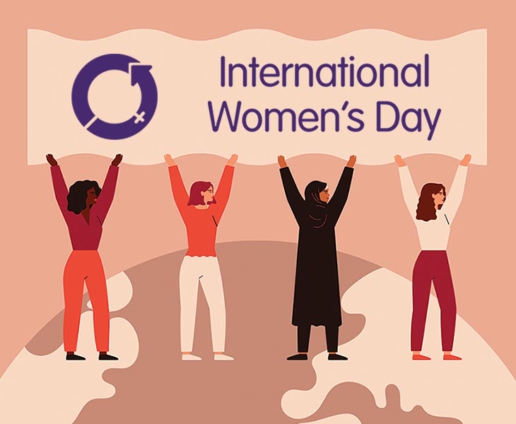The Aya Institute for Women has congratulated Ghanaian women on the occasion of International Women’s Day celebrated every year on March 8.
“We have come far as women of all spheres, and International Women’s Day provides that opportunity to celebrate our gains, reflect on our journeys as women and call for a better gender-responsive system that actually recognizes, includes, and celebrates Ghanaian women” the Institute said in a statement.
According to the Inter-Parliamentary Union (IPU), as of March 2022, only 26.1% of all national parliamentarians globally were women which still represents a low increase compared to the UN benchmarks set at 30% female representation in decision-making positions.
The Institute said Ghana’s situation is no different.
“After the 2016 general elections, Ghana’s Parliament recorded 35 (13%) female Members of Parliament (MPs) and 240 (87%) male MPs out of the 275 MPs, while the 2020 general elections recorded 40 female MPs (14.5%) and 235 (85.4%) male MPs. According to gender research experts, with the current rate of progress, gender parity in national legislative bodies will not be achieved before 2063.
In the just-ended parliamentary primaries of the National Democratic Congress (NDC) and the New Patriotic Party (NPP), Aya said it witnessed some female members of parliament losing their bids to their male competitors.
“Despite being ushered into modern democracy after three decades, we are yet to make bold and intentional national laws of political inclusion by employing a gender quota system in key sectors, recognising two things: The historic imbalances against women; and that participation in key sectors by women is both their democratic and employment rights.”
According to the Aya Institute, “This is the surest way to recognize and utilize women’s talents to the development of the country. This year’s theme of inclusion is quite significant especially as the country gears up for rigorous campaign activities. True women's empowerment through the labour force participation of women and education is an enhancing effect of women's empowerment on democracy. Breaking down stereotypes surrounding women’s leadership and achievements will foster the inclusion of women in Ghana”it noted.
The Institute is thus appealing to all political parties, ahead of the release of their manifestos to make specific commitments on gender policy.
It is also calling on women voters to recognise their power en bloc and consider their interests by accessing the collective social policies of political parties.
“Women’s vote and women’s political mobilization are the key drivers for success for political parties and those contributions must be politically negotiated and rewarded.”
The Institute also entreated the Ghanaian media to be gender-responsive as the country goes to the polls by producing content and panels that recognise women as an integral part of society and Ghana, politics.
“We must avoid gender stereotyping and occasional gender spotlighting in our news reportage. Gender must be normalised and we must make a conscious effort during this electioneering period to gender audit programmes, panels and issues. The masculinised terrain and adversarial politicking and mediation must be shunned for consensus and decency.
Aya concluded that a good and functional democracy considers women’s inclusion, as a key investment a nation can make.
“Inclusion, therefore, makes democratic sense and our nation must strive towards it.”
About Aya Institute
The Aya Institute is an independent organisation which conducts research, and training, and provides advisory services on Gender Equality across several themes. Aya Institute is focused on a new path of maximising growth and promoting dignity in public and private sector institutions as well as the society at large through research that informs gender dynamics, and services that build gender-aware systems in these institutions and areas.
Additionally, the Institute works within the political arena on candidates and campaigns; with Media institutions on gender-responsive reporting and programming as well as gender-sensitive content writing, review, and auditing; and within the workplace on diversity and inclusion, sustainable management, and human capital development.
The Institute is run by renowned researchers, committed gender advocates, seasoned public policy experts and subject-matter professional trainers.
Latest Stories
-
Don’t forget your roots: Nana Oye interacts with Ghanaian diaspora in Austria
35 seconds -
KTU Radio to participate in Bank of Ghana training workshop
2 hours -
Akwaboah to release new single ‘Smile Again’ featuring Nadia Buari
3 hours -
Actress Matilda Asare graduates from KNUST with Master’s degree
4 hours -
Nana Oye Bampoe Addo celebrates Ghanaian diaspora and cultural heritage in Vienna
4 hours -
Ghana reaffirms global leadership in anti-corruption at UN Summit in Vienna
4 hours -
Practicing quality mental health on construction sites
4 hours -
Eric Opoku urges AU-EU to prioritize innovation for food security at ministerial conference in Rome
4 hours -
Stanbic Bank joins BRIDGE-in Agriculture programme to drive inclusive agricultural growth
5 hours -
Food Safety: Veterinary Services raises alarm over unsafe food handling
5 hours -
I won’t follow your path in correcting falsehoods – CJ removal petitioner tells Torkornoo
5 hours -
Can Ghana consolidate gains of economic stability and growth experienced under Dr. Asiamah?
5 hours -
I’m not doing music professionally – Diana Hamilton
5 hours -
Spice Events wins big at Omega Psi Phi Fraternity Tournament
5 hours -
This Saturday on Newsfile: CJ probe, EC heads removal talks, BoG staff termination
6 hours

